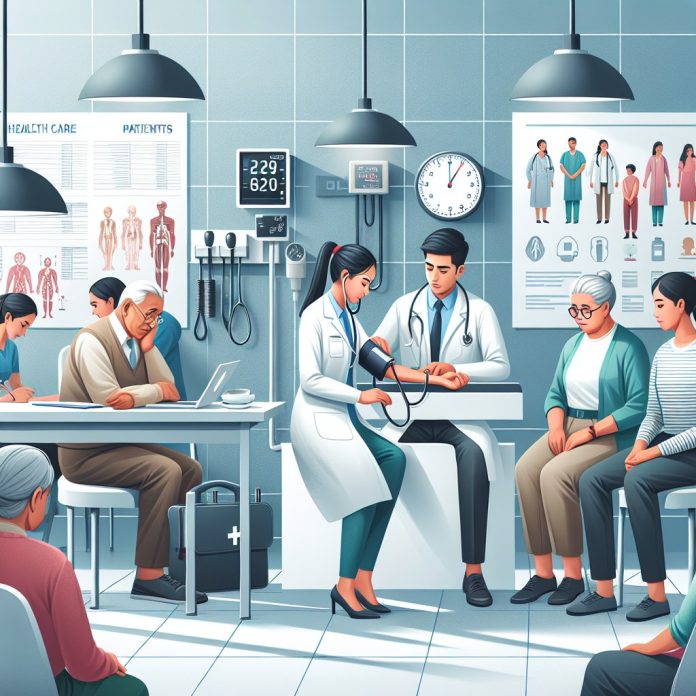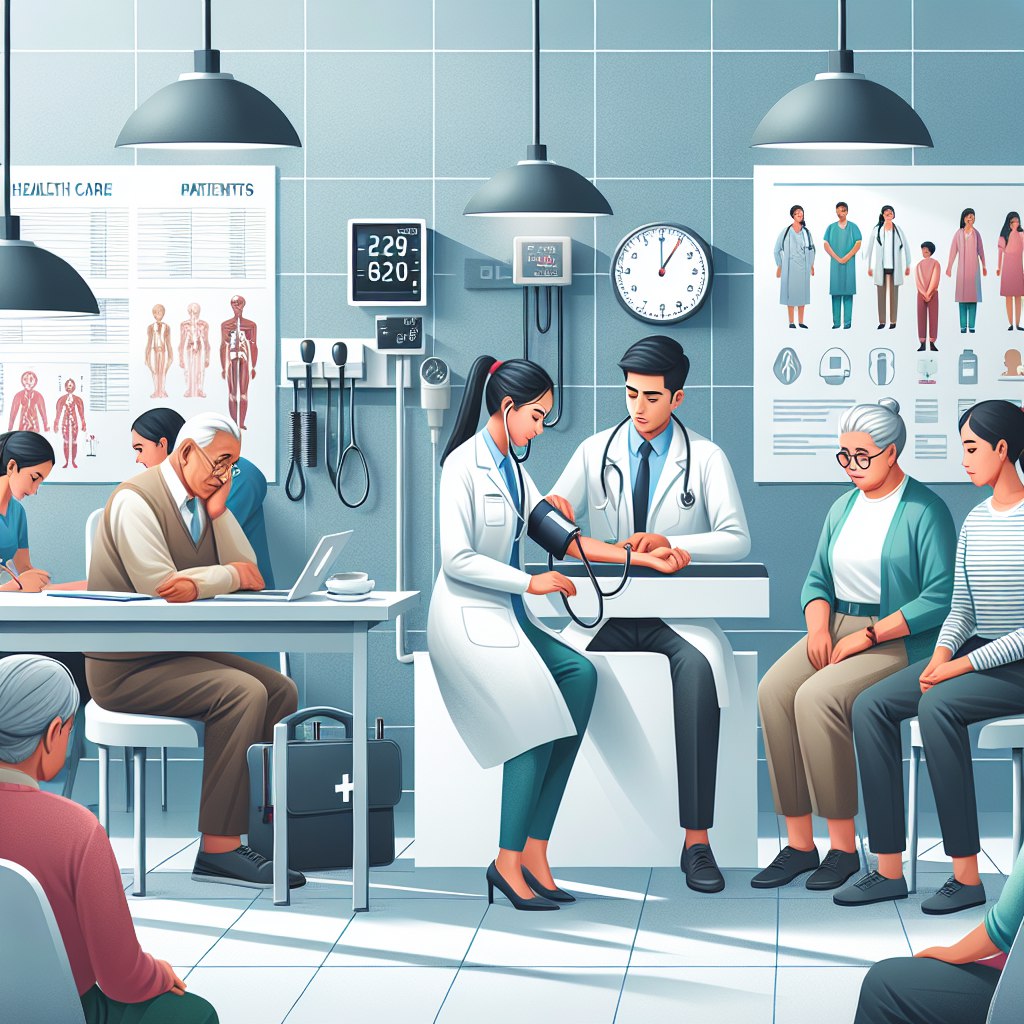
Define Primary Health Care: A Comprehensive Guide
Primary health care is a foundational aspect of health systems worldwide, ensuring that individuals receive comprehensive, accessible, community-based care. Understanding the essence of primary health care (PHC) is crucial for improving health outcomes globally. This article aims to define primary health care, explore its components, significance, and implementation strategies, while adhering to Google SEO standards to ensure accessibility and clarity.
What is Primary Health Care?
🌐 Definition: Primary health care refers to essential health care made universally accessible to individuals and families in the community by means acceptable to them, through their full participation, and at a cost that the community and country can afford.
Historical Background
📜 Alma-Ata Declaration: The concept of primary health care was globally recognized in 1978 during the International Conference on Primary Health Care held in Alma-Ata, Kazakhstan. The Alma-Ata Declaration highlighted PHC as the key to achieving “Health for All.”
Components of Primary Health Care
Accessibility
🚑 Universal Access: Primary health care aims to ensure that health services are accessible to everyone, regardless of their socio-economic status, geographic location, or background.
Community Participation
👥 Involvement of the Community: Effective PHC involves the active participation of community members in planning, decision-making, and implementation of health services.
Intersectoral Coordination
🔗 Collaborative Approach: PHC requires collaboration between various sectors, including health, education, agriculture, and finance, to address the social determinants of health comprehensively.
Health Promotion and Prevention
🩺 Preventive Measures: PHC emphasizes the importance of health promotion, disease prevention, and health education to enhance overall well-being and reduce the burden of diseases.
Appropriate Technology
💻 Use of Technology: The application of cost-effective and appropriate technology is essential to deliver primary health care efficiently and effectively.
The Role of Primary Health Care Providers
General Practitioners
👨⚕️ First Contact: General practitioners (GPs) often serve as the first point of contact in the health care system, providing initial diagnosis, treatment, and ongoing care.
Nurses and Community Health Workers
👩⚕️ Extended Support: Nurses and community health workers play a critical role in delivering PHC services, particularly in rural and underserved areas.
Specialists and Referral Systems
🔄 Referral Mechanisms: When necessary, PHC providers refer patients to specialists or higher levels of care, ensuring a seamless continuum of care.
Importance of Primary Health Care
Improved Health Outcomes
📈 Better Health: Countries with strong primary health care systems tend to have better health outcomes, including lower infant mortality rates and higher life expectancy.
Cost-Effectiveness
💰 Affordable Care: PHC is a cost-effective approach that reduces the need for expensive tertiary and specialized care by focusing on prevention and early treatment.
Equity in Health
⚖️ Equal Access: PHC promotes equity in health by providing services to marginalized and vulnerable populations, reducing health disparities.
Strengthening Health Systems
🏥 System Resilience: A robust PHC system strengthens the overall health system, making it more resilient to public health emergencies and crises.
Strategies for Effective Primary Health Care
Community Health Initiatives
🏡 Local Programs: Implementing community health initiatives, such as vaccination drives, maternal and child health programs, and health education campaigns, is vital for effective PHC.
Health Workforce Training
🎓 Education and Training: Continuous training and capacity-building programs for health care providers ensure that they are equipped with the latest knowledge and skills.
Policy and Governance
🗳️ Strong Policies: Governments must develop and implement policies that support the provision of comprehensive and equitable primary health care services.
Health Information Systems
📊 Data Management: Robust health information systems are essential for monitoring and evaluating PHC services, enabling evidence-based decision-making.

Challenges in Implementing Primary Health Care
Resource Constraints
💸 Limited Funding: In many low- and middle-income countries, limited financial resources pose a significant challenge to delivering comprehensive PHC services.
Workforce Shortages
👥 Lack of Personnel: A shortage of trained health care providers, particularly in rural and underserved areas, hinders the effective delivery of PHC.
Infrastructure Deficits
🏚️ Inadequate Facilities: Insufficient health care infrastructure, such as clinics and medical equipment, affects the quality and accessibility of PHC services.
Socio-Cultural Barriers
🌍 Cultural Sensitivity: Addressing cultural beliefs and practices that may impede the acceptance of health care services is crucial for effective PHC implementation.
The Future of Primary Health Care
Technological Advancements
🚀 Innovation: Embracing technological innovations, such as telemedicine, mobile health applications, and electronic health records, can enhance the delivery of PHC services.
Integrated Care Models
🔄 Holistic Approach: Integrated care models that combine PHC with other health services, such as mental health and dental care, can provide comprehensive care to individuals and communities.
Global Collaboration
🌐 International Efforts: Global collaboration and partnerships are essential to share best practices, resources, and knowledge to strengthen PHC systems worldwide.
Policy Advocacy
📢 Advocacy and Awareness: Advocating for stronger PHC policies and increasing public awareness about the importance of primary health care can drive positive changes in health systems.
Conclusion
Primary health care is a critical component of any health system, playing a pivotal role in improving health outcomes, promoting equity, and enhancing the resilience of health systems. By understanding and implementing the principles of PHC, communities and governments can ensure that everyone has access to essential health services. The Dr. YSR Aarogyasri Health Care Trust is one such example of how primary health care can be effectively utilized to provide comprehensive and equitable health services.
For more information on primary health care, consider exploring resources from the World Health Organization and other reputable health organizations. Ensuring a strong primary health care system is key to achieving universal health coverage and building a healthier, more equitable world.



















